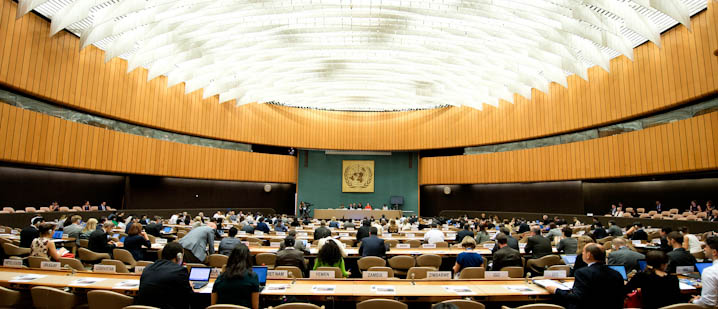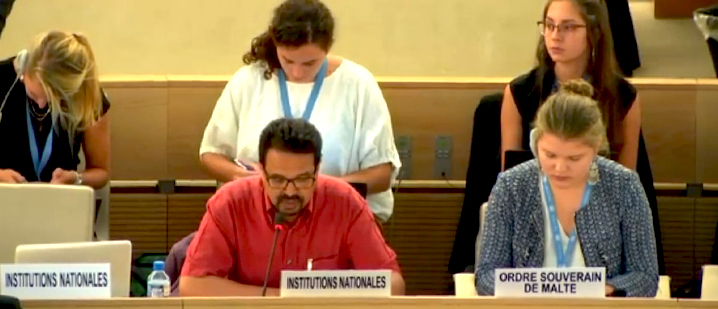CNDH statement on enforced disappearances before the Human Rights Council

The National Human Rights Council (CNDH) took part in the interactive dialogue with the Working Group on Enforced or Involuntary Disappearances (WGEID) on 12 September 2018 at the Palais des Nations in Geneva. This dialogue was organized as part of the 39th session of the Human Rights Council (HRC) and focused on reviewing standards and policies to ensure effective investigations on enforced disappearance.
CNDH statement shed lights on actions and methodology to deal with cases of enforced disappearances. This methodology was adopted by the Moroccan Truth Commission (IER) and the CNDH follow-Committee. The Council stated that this methodology included field surveys and documentary research. It involved all concerned stakeholders, particularly released victims of enforced disappearances, families of deceased victims, associations and bodies representing these victims.
 After the creation of the Advisory Council on Human Rights (currently CNDH) in 1990, 402 victims of enforced disappearance were released. The CNDH explained that the IER organized meetings to give a hearing to victims’ families, identified their claims and explained the IER approach and its methodology to deal with cases of enforced disappearance.
After the creation of the Advisory Council on Human Rights (currently CNDH) in 1990, 402 victims of enforced disappearance were released. The CNDH explained that the IER organized meetings to give a hearing to victims’ families, identified their claims and explained the IER approach and its methodology to deal with cases of enforced disappearance.
Furthermore, the CNDH specified that the Moroccan Truth Commission organized public hearings for victims and six thematic hearings in six regions. They were broadcast fully on state-owned radio and television. The IER also used a scientific expertise to further investigate the burial sites of the deceased victims in collaboration with the Department of Forensic Medicine.
On 12 September 2017, the Human Rights Council held an interactive clustered dialogue with Mr. Bernard Duhaim, Chair-Rapporteur of the WGEID.
In his report, Mr. Duhaine said that over the past year, the WGEID transmitted 802 new cases of enforced disappearance to 40 States, of which 264 urgent action procedure cases to 21 States. The Chair-Rapporteur of the WGEID asked the HRC Member States to consider “very seriously” the issue of enforced disappearances as a crime under international law and whose number is increasing.
The registration of the CNDH statement on the following link:
http://webtv.un.org/search/clustered-id-wg-on-arbitrary-detention-wg-on-involuntary-disappearances-7th-meeting-39th-regular-session-human-rights-council-/5833915234001/?term=&lan=english&page=3






















